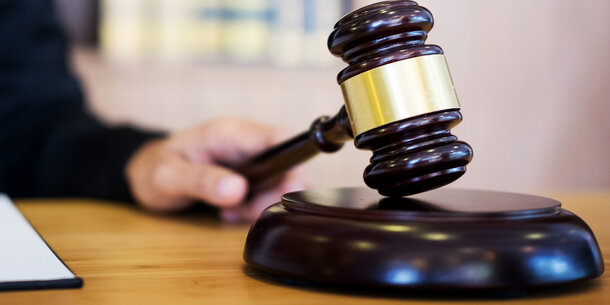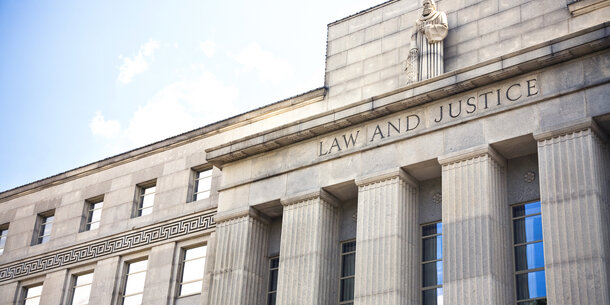U.S. Supreme Court to Hear Some Oral Arguments by Telephone
On April 13, the U.S. Supreme Court announced that it would hear arguments in ten cases by telephone in May that were previously postponed due to Covid-19. The live audio feed will be publicly available for the first time in the Court’s history. Among the cases the Court will hear remotely are those concerning President Trump’s financial records and Chiafalo v. Washington, a case on “faithless electors.”
The Court has previously refused to allow video coverage or live audio of oral arguments, only releasing audio recordings of arguments on its website at the end of each argument week (with the exception of a few high-profile cases in which the Court released same-day audio). Over the years, the justices have provided a number of reasons for not live streaming arguments, including the possibility that listeners could get the wrong impression from hearing the justices play devil’s advocate.
According to a poll of 1,000 Americans released by Fix the Court, 71% of those surveyed support the justices convening remotely to hear oral arguments for the duration of Covid-19, and 61% were in favor of televising those arguments.
Senate Temporarily Stalls Judicial Confirmations due to Covid-19
The U.S. Senate will temporarily pause confirmation hearings for federal judicial nominees due to the Covid-19 pandemic.
According to Politico, Senate Majority Leader Mitch McConnell (R-KY) said, “Of course, we will go back to judges. My motto for the rest of the year is leave no vacancy behind.” The Senate is scheduled to return to Washington, DC on April 20, though several senators have said that that date is likely to be pushed back depending on the progression of the pandemic. On April 15, President Trump threatened to adjourn Congress so that he could continue to fill vacant seats in the judiciary.
There are currently 33 nominees pending confirmation by the Senate. As of April 16, the Republican-controlled Senate has confirmed 193 of President Trump’s nominees to the federal judiciary, including two Supreme Court justices and 51 appellate court judges. This confirmation rate is the “[second] fastest confirmation pace of all U.S. presidents” behind Jimmy Carter, and the “fastest confirmation pace for federal appellate judges of any U.S. president,” according to Judiciary Tracker.
Wisconsin Goes Ahead with State Supreme Court Election Amid Covid-19
On April 7, Dane County Circuit Judge Jill Karofsky defeated incumbent Justice Daniel Kelly for his seat on the Wisconsin Supreme Court, shifting conservative control of the court from 5–2 to 4–3. The Brennan Center documented at least $4.8 million in spending by outside interest groups, the most in a state supreme court election this year.
Karofsky won the election with 55.3% of the vote, though voter turnout in Wisconsin was down from 49% in the 2016 presidential primary to 31% for last week’s Democratic presidential primary. President Trump endorsed Kelly for the seat, though elections to the Wisconsin Supreme Court are nonpartisan.
In light of the crisis, Governor Tony Evers attempted to delay the election until June, but the Wisconsin Supreme Court struck down the governor’s order, and the U.S. Supreme Court overturned a lower court decision extending the deadline by which absentee ballots must have been received. Both decisions broke down along ideological lines.
Courts Continue to Respond to Covid-19
As Covid-19 continues to spread throughout the U.S., federal and state courts across the country have continued to adopt policies to respond to the crisis. The Brennan Center has been tracking and analyzing these updates.
As of April 16, all 13 of the courts of appeals have opted to hold oral arguments remotely or have postponed those proceedings through at least part of April. Most of the 94 federal district courts have also opted to halt certain in-person proceedings, including jury trials. Similarly, more than half of state courts have limited or delayed in-person proceedings, and most states are requiring or encouraging the use of virtual hearings.
Immigration courts, however, have made minimal changes in response to the crisis, largely remaining open. Unlike other courts, immigration courts are controlled by the Department of Justice and its judges are executive branch employees.

